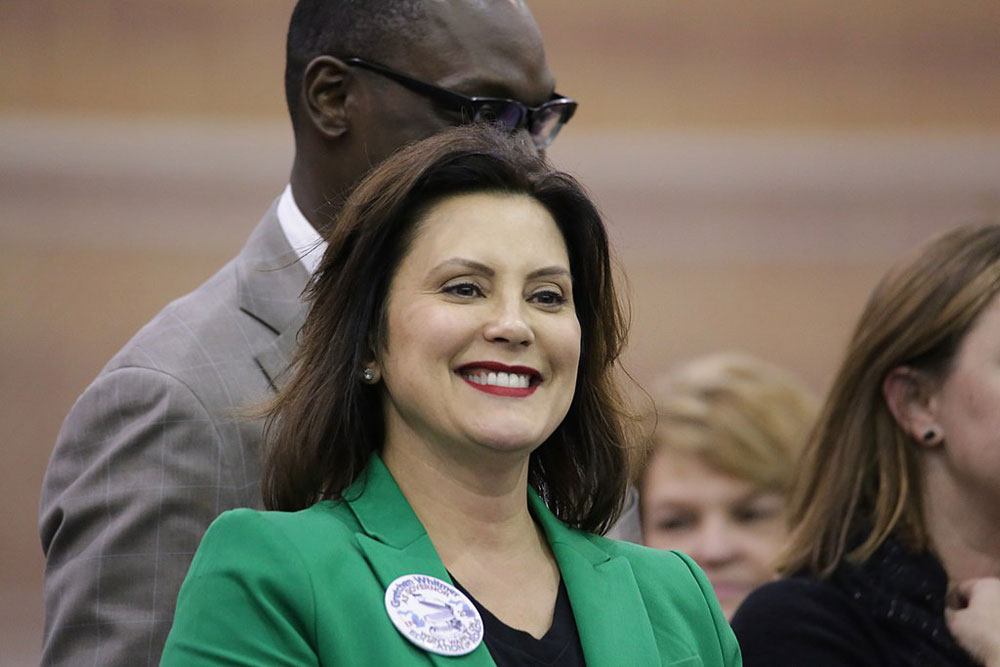
April 25, 2020; Los Angeles Times, The Root, and CBS Chicago
COVID-19 has hit our nation’s communities of color disproportionally hard—that stark reality is clear. Emerging numbers of sick and dying people stand as a reminder of the severe health impact of structural racism. In response, politicians in Michigan, Illinois, and California have sought to retool pandemic programs to address health needs in communities of color.
For example, in Michigan, Governor Gretchen Whitmer (D) established the Michigan Coronavirus Task Force on Racial Disparities on April 9th. According to her executive order, the task force will develop “strategies to immediately address this troubling disparity and the historical and systemic inequities that underlie it.”
The Michigan Task Force is charged to address the immediate challenge of the virus by ensuring equal access to “physical and mental health care; reduce the impact of medical bias in testing and treatment; mitigate environmental and infrastructure factors contributing to increased exposure during pandemics resulting in mortality; and develop and improve systems for supporting long-term economic recovery and physical and mental health care following a pandemic.”
Chicago’s Mayor Lori Lightfoot, seeing similar gaps in COVID-19 cases between Black and white residents in her city, created a Racial Equity Rapid Response Team (RERRT) led by a community-based nonprofit, West Side United, to lead a “tactical effort to reach out to those in need of health care services, from symptom monitoring to testing to proactive care.”
Describing the city’s strategy, Lightfoot tells CBS Chicago:
Sign up for our free newsletters
Subscribe to NPQ's newsletters to have our top stories delivered directly to your inbox.
By signing up, you agree to our privacy policy and terms of use, and to receive messages from NPQ and our partners.
In response to the shockingly disproportionate impact this disease has had on our communities, RERRT is working aggressively and in close collaboration with local leaders and partners to mount a public health response that addresses the specific and contextualized needs of our residents and families. This crisis has also doubled-down our longer mission to fight poverty, end racial inequality, and ensure every Chicagoan has access to a bright future we all deserve.
A similar response came from leaders in Oakland, California. The COVID-19 Racial Disparities Task Force was created, according to a press release issued by the city, “to devise ways to reduce the predictable overrepresentation of African American and Native American fatal cases of COVID-19 in Oakland and Alameda County. Additionally, to investigate and respond to risk associated with barriers to social distancing as potentially impacted by crowded living conditions for [Latinx] and Asian residents, and for unhoused people living in Alameda County.”
If they succeed, these efforts will lessen immediate harm while recognizing and responding to the deeper societal conditions that leave poor communities and people of color at greater risk, including “chronic poverty, living in neighborhoods with inadequate access to good health care, steered toward jobs that place them at greater risk, and incarcerated in great numbers.” Marta Segura, a Los Angeles-based environmental justice and public health consultant, tells the L.A. Times what’s required “to prevent such uneven outcomes in the future”:
Officials must fix the root causes and go beyond expanding testing and treatment and other measures that respond only to the immediate health emergency….If we want to deal with disasters and pandemics of the future, we need to address the larger failures of our policies and economic frameworks in all communities, but particularly in communities of color that have been disproportionately impacted.
—Martin Levine











